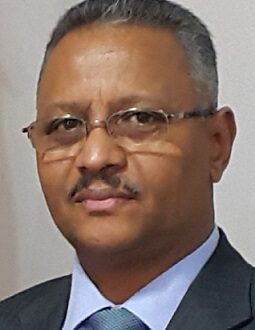Popular Resistance in Due Time

Al-Obaid Ahmed Marwah
The call back up and stand with the Armed Forces and supply them with men, money, moral support and actions has not stopped since the first bullet was fired in the rebellion of the Rapid Support Forces (RSF) against the army and the militia’s war against the Sudanese people. However, the Sudanese people did not rise to defend themselves, their money and their honor as they did during the past two days following the resounding fall of the Wad Medani, the capital of Gezira State, in the hands of rebel gangs who then invaded the rest of the cities and villages of the state.
In this article, we will try to examine the implications of the momentum created by the launch of popular resistance, and whether it is a passing matter or an event that will have further repercussions.
I begin by reminding you that since the first week of the war, many have realized that a plan to break Sudan’s back and eliminate what remains of the state’s symbolism has begun to be implemented, and that everyone capable must rise up to resist that plan with all their resources.
A significant number of young people and some elderly people hastened to join the armed forces camps in Khartoum State, offering themselves and their expertise to serve the Sudanese army; some of them martyred and some of survived.
After the Commander-in-Chief of the Army issued his call for mobilization, large groups of Sudanese youth responded and participated in military training camps and in civilian support efforts for the war effort, and some of them actually entered the battlefield.
Not only did large segments of politicians and the media follow and watch, but from the first days they confronted what they considered to be a conspiracy targeting the survival of the nation and the origin of its existence. They exerted all their knowledge, capabilities, and relationships – each in their field – to expose the plan, highlight its danger, and confront the falsification campaigns led by the supporters of the rebellion to distort awareness of local and international public opinion, and support for the armed forces, and this group still holds on to its means as fighters hold on to their rifles.
But all of this alone was not enough for the popular resistance to take off in the way it has now. It is certain that there are a number of reasons that combined to lead to this, but the most important reason in my view, and the most dangerous, is the growing feeling among large segments of the Sudanese that their army, which they have always sided with, is unable to achieve a decisive victory over the rebellion and thus protect them against violations, killings and looting committed by the militia, and it does not matter much to these segments to investigate the reasons for this, and whether the failure to achieve a decisive victory after nine months of war is intentional in itself or is it an inability justified by objective causes!!
For four consecutive years, the Central Council group in the Forces for Freedom and Change, and the regional and international forces that support it, have been working to destroy the bright mental image of the armed forces in the minds of the Sudanese, as part of its plan to restructure the military institution, and it has continued to accuse it at times of standing against the will of the people for democratic rule. Stable, sometimes with the inability to fight enemies, and sometimes with charlatanism and political bias, there is no doubt that it has made significant progress in painting a distorted image of the army and its soldiers.
But the performance of the armed forces during four months of confronting the rebellion almost erased the efforts of the four years during which the Forces of Freedom and Change practiced all forms of distortion, and the armed forces regained their bright image in light of their confrontation of the conspiracy that was aimed at the survival of the homeland and the origin of its existence, and the bravery of its members and officers to defend the symbolism of the state and thwart the insurgency’s desperate attempts to occupy the command headquarters and the fortresses of the armed forces in the national capital.
But the setbacks that occurred in Darfur, and the withdrawal of the army garrisons in Nyala, El Geneina, Zalingei, and El Daein, had a negative impact on large segments of public opinion, although they were understandable, given that those garrisons held out for eight months under what looked like a siege and the interruption of supplies. But impact of these garrisons on the people of the center, north, and east was not like the fall of Wad Madani, which occurred almost without a fight, and that is why the impact was so painful, and it is what sent a negative message in the mail of public opinion that your army is unable to protect you, and perhaps unwilling!!
The Sudanese Armed Forces, as they are now the de facto ruler of the state and the party leading the fighting, need a fantastic effort to restore their image as a protector of the nation’s potentials and a defender of the property and honor of its people. This is a task, although it may seem difficult in the short run, but it is not impossible in the medium run, and objective conditions have been prepared for the emergence of popular resistance movements in northern and eastern Sudan, and popular resistance will arise even in the central states, as it will constitute the political and popular incubator for the country’s army, and its most prominent tool in resisting the barbaric and reckless behavior of the militia, resisting external pressures and bargains, and liberating the entire land of Sudan from every treacherous, traitorous and anyone desirous in its resources and wishing to impose their control over it.



